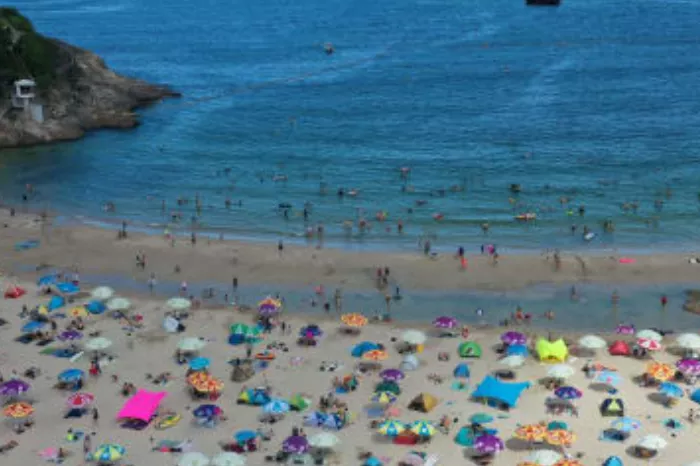For decades, surfing in Hong Kong has existed in a gray area, unofficially illegal yet rarely enforced. However, recent government actions have raised alarm among local surfers, who fear that their limited surf spots may soon be closed off entirely.
Two surfers are potentially facing prosecution by Chinese authorities after paddling out during dangerous conditions last week, as Typhoon Trami brought hazardous weather to the region. According to The South China Post, the incident took place on October 25 when the Leisure and Cultural Services Department (LCSD) noted that surfers were active at Big Wave Bay—a beach where a red flag had been raised to warn of large waves.
Secretary for Security Chris Tang Ping-keung reported, “The LCSD discovered two members of the public illegally surfing off Big Wave Bay during an enforcement action.” The presence of red flags serves as an official warning against swimming or surfing due to perilous surf conditions.
Historically, while surfing has been officially banned on designated swimming beaches in Hong Kong, the ban has often been overlooked. Tang noted that only one prosecution for illegal watersports during flagged conditions occurred in the past three years. Offenses can result in penalties of up to two weeks in jail and fines of HK$2,000 (approximately USD $257).
The dynamic shifted earlier this year when the government enacted new regulations aimed at safeguarding the public during typhoons and inclement weather, explicitly targeting surfers and storm chasers. By June, the authorities had erected new “No Surfing” signs in both English and Chinese at 42 beaches, including Big Wave Bay—one of the few locations in Hong Kong suitable for riding waves. Local surfers have expressed concern over this messaging, feeling unfairly targeted by what they perceive as overly strict regulations.
James, a local surfing instructor residing near Big Wave Bay, voiced the confusion within the community: “We haven’t really been given information or clarification about ‘This is why we’re doing this.’ So we’re not too sure if it’s a permanent policy or if they want to keep it in for good.”
In response to the government’s actions, The South China Post’s Editorial Board published a critical opinion piece, emphasizing the need for balance. They acknowledged the dangers of reckless behavior during severe weather but argued against an outright ban on surfing. “A way should be found to ensure that surfing can be enjoyed safely and lawfully. Surfing and swimming coexist happily in many parts of the world,” the editorial stated, calling for a solution that accommodates both safety and the surfing community.
Related topics:
- Hurricane Boats Introduces the SunDeck 3200: A New Era in Deck Boat Design
- Sukhvinder Sukhu Launches Water Sports at Gobind Sagar Lake
- Cotswold Lakes Receives £31,000 Grant to Develop New Water Sports Hub

